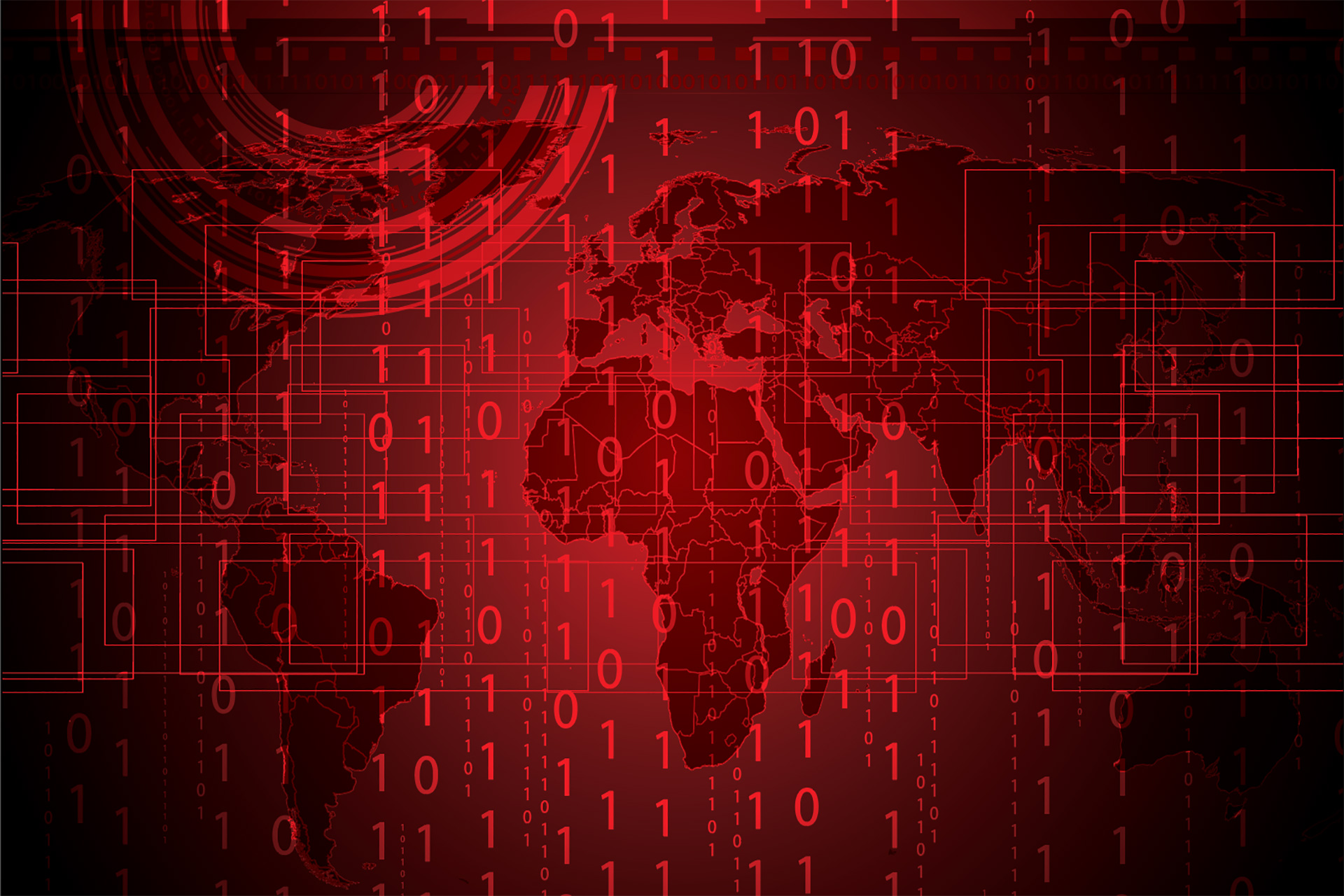In 2019, the United Nations Secretary-General Antonio Guterres said: “the growing frequency and severity of cyber-attacks are undermining trust and encouraging states to adopt offensive postures for the hostile use of cyberspace”[1]. In simple terms, the rapid development of cyberspace attracts states as a new ultimate weapon. However, it seems that, despite all the fear of a new type of war — cyber war — happening intangibly, cyber-attacks will never replace traditional war tools like rockets, tanks, riffles, and whatnot.
As Dr. Thomas Rid argues in “Cyber War Will Not Take Place”, a full-scale cyber war, similar to traditional warfare, is unlikely to occur. He contends that actual cyber wars, in which the aim is to achieve political objectives through force and violence in cyberspace, are unlikely because of the attribution challenges, lack of destructive power, and other factors[2].
Following the meteoric growth of cyberspace within the recent two decades, talks about the use of cyber as a weapon became mainstream of the current political agenda. Military experts worldwide always discuss the issue of a weaponized code (simply, a computer code that destroys the networks of a would-be enemy, like a computer virus you can accidentally face while browsing the Web) and how it will change future wars, moving to the virtual battlefields. Yet the question arises: how does this all work?
Cyber-attacks (the use of a weaponized code) can be described as “the use of deliberate actions to alter, disrupt, deceive, degrade, or destroy computer networks of an enemy”[3].
Indeed, let us imagine the world without wars as we are used to seeing them: states are exchanging cyber-attacks rather than sending soldiers. Notably, the eventual impact might be the same or even more adverse, manifested in enormous economic and reputational losses.
The principal cause for states to lose everything once they face a cyber-attack is the constantly increasing interdependencies and interconnectivity. In this regard, Singapore might be a good sample.
First, Singapore is a small country, posing no threats or obstacles to those willing to attack the state. Second, Singapore is an essential economic hub in Asia, making it more attractive to be threatened and targeted. Third and most important, everything in Singapore, like in most countries, depends on the Internet: the healthcare system, different Apps through which citizens interact with the government, and, significantly, banks. Respectively, it is relevant to recall the 2018 SingHealth data breach[4].
Now, imagine a scenario of Singapore being attacked. In the current realities, there will be two strategies: (1) to attack Singapore with tanks, fighter jets, missiles, and soldiers, or (2) simply cut the Internet access and hack the computer networks of, for example, the Ministry of Healthcare, the Ministry of Defense, or banks like DBS.
On paper, the (2) strategy seems favorable because it will cause the same effect as the (1), such as isolating Singapore from the international system, causing billions of dollars in losses and diverse internal issues with data leakages, followed by increasing distrust and unrest. Similarly, it will cost much less to the aggressor as there will not be human casualties, and the military equipment will not be used and will be stored for potentially more significant conflicts.
Based on such a hypothesis, the idea of states placing cyberspace at the top of future warfare seems quite reasonable. And it actually makes no sense to invest in the army anymore. Nonetheless, it is too early to make such a conclusion.
For almost two years, the global political and military discourse has been gripped by the ongoing conflict in Ukraine, which should have showcased emerging technologies (like cyber) being at the forefront of the tools and means used by both sides. Yet the results have yet to match the expectations.
Even though cyber warfare plays an indispensable and integral role in the conflict for both Russia and Ukraine, with powerplants, government networks, and other critical infrastructure being targeted[5], the principal theatre of the crisis is still land. Essentially, both Russia and Ukraine rely on traditional weapons (tanks, missiles, etc.) as decisive.
As such, it is worth recalling that Ukraine has been heavily supported by arms supply from the United States and European countries till today. Ultimately, what does this all tell us about?
The main idea is that the states intend to refrain from investing mindlessly in strengthening cyber capabilities, leaving the traditional weapons behind. Significantly, cyber will never replace tanks and riffles, and there are several reasons for that.
Prestige and global image
It is essential to see the principal difference between the cyber domain (virtual and intangible) and the physical domain (real and tangible). In simple terms, imagine a state that recently developed the most advanced missile launching system or a new tank. This state successfully conducted some exercises and, thus, demonstrated this new technology to the rest of the world. At the same time, the other state at some international conferences declared the enhancement of its cyber defense infrastructure, which is impossible to showcase and challenge.
Which state will be seen as more powerful and threatening in the eyes of the others? Apparently, the first one. As a state, it is essential to have tanks, missiles, and so on to demonstrate power and strength in the international arena.
Certainty of losses and gains.
Since everybody is hiding their cyber capabilities, a state will never be able to calculate the possible expenditures and benefits after conducting a cyber-attack. Imagine somebody who wants to hack your account. They always need to find out how long the process will take, as it depends on the difficulty of your password and the security measures you invoke. Respectively, states would instead use traditional weapons since they are easier to measure and predict.
Law regulations
Cyberspace seems attractive because it is not sufficiently regulated by law. Simply, the states have complete freedom of action with no clear punishments for illegal actions. Yet, it will be different in the future, which minimizes the attractiveness of cyber warfare. Indeed, it is worth noting that cyber will never replace traditional tools of war due to its uncertainty. Instead, it is an accompanying tool that enables states to be more efficient on the battlefield.
[1] Remarks to the Internet Governance Forum // United Nations Secretary-General. URL: https://www.un.org/sg/en/content/sg/speeches/2019-11-26/remarks-internet-governance-forum#:~:text=In%20such%20a%20climate%2C%20mechanisms,much%20more%20vigorous%20collective%20response (accessed 31.10.2023).
[2] Rid Th. Cyber War Will Not Take Place // Journal of Strategic Studies. 2011. Vol. 35. No.1. P. 5-32.
[3] Lin H.S. Offensive Cyber Operations and the Use of Force // Journal of National Security Law & Policy. 2010. Vol. 4:63. P. 63-86.
[4] Singapore personal data hack hits 1.5m, health authority says // BBC News. URL: https://www.bbc.co.uk/news/world-asia-44900507 (accessed 31.10.2023).
[5] Cyber Conflict in the Russia-Ukraine War // Carnegie Endowment for International Peace. URL: https://carnegieendowment.org/programs/technology/cyberconflictintherussiaukrainewar/#:~:text=About%20the%20Series-,The%20war%20in%20Ukraine%20is%20the%20largest%20military%20conflict%20of,provides%20precious%20material%20for%20study (accessed 31.10.2023).
Key words: Global Security; Cybersecurity
GRS/ET


